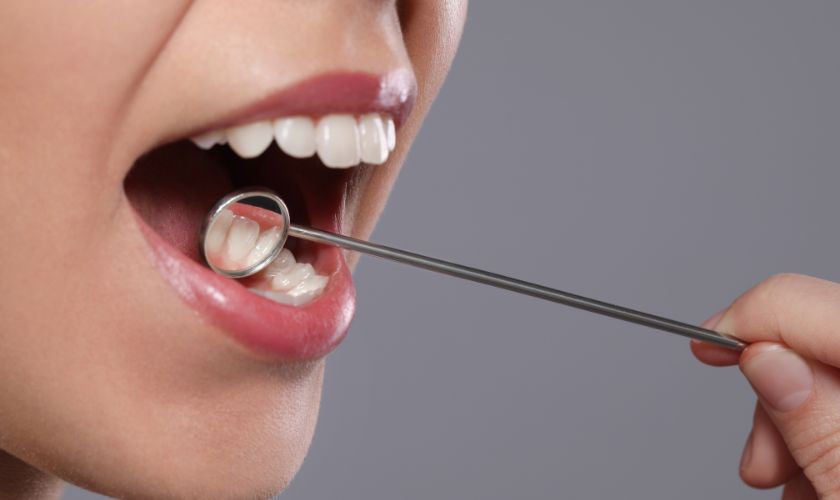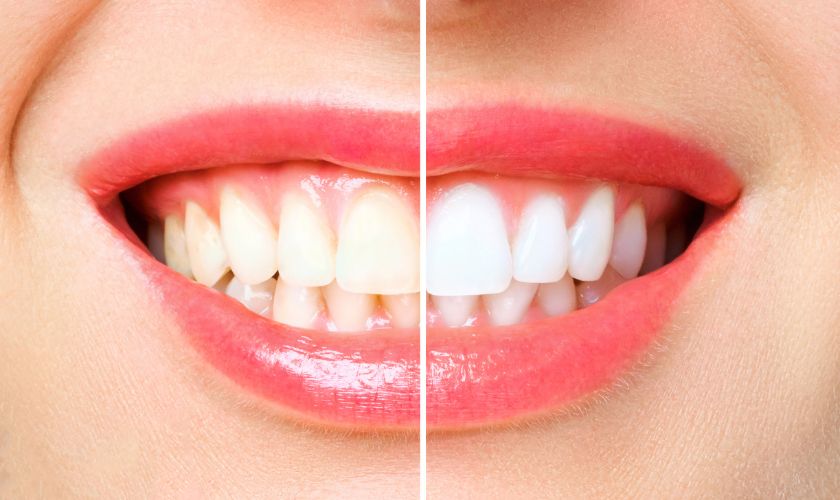Are you missing one or more teeth? Do you find it difficult to eat, speak or smile with confidence because of your dental issues? If so, dentures and dental implants are two popular solutions that can help restore your smile. But which option is right for you? In this blog post, we will explore the benefits of both dentures and dental implants to help you make an informed decision about which treatment is best suited for your needs. Let’s dive in!
What are dentures?
Dentures are removable prosthetic devices that replace missing teeth and surrounding tissues. They come in two types: full dentures and partial dentures. Full dentures are used when all the natural teeth are missing, while partial dentures are used to fill gaps caused by several missing teeth.
These dental appliances consist of artificial teeth attached to a gum-colored base made of acrylic or nylon material. The base is custom-made to fit your mouth comfortably and securely using impressions taken by your dentist.
Dentures can improve chewing ability, speech clarity, and appearance for people who have lost some or all of their natural teeth due to decay, injury or other reasons. However, they do require regular cleaning and maintenance as well as adjustments over time to ensure optimal fit and comfort.
While dentures may not feel complete like natural teeth, modern advancements in technology have made them more comfortable than ever before while providing an affordable option for tooth replacement.
What are dental implants?
Dental implants are a popular option for individuals who have one or more missing teeth. They are artificial tooth roots that are surgically placed into the jawbone, providing a strong foundation for replacement teeth.
The implant itself is typically made of titanium, which is biocompatible with the body and allows it to fuse with the bone over time through a process called osseointegration. Once this fusion has occurred, an abutment can be attached to the implant and used to support a crown or bridge.
One of the key advantages of dental implants is their durability – they can last for decades if properly cared for. Additionally, because they replace both the root and crown of a missing tooth, they provide excellent stability and functionality.
However, dental implants do require surgery and may not be suitable for all patients – those with certain medical conditions or insufficient bone density in their jaw may need additional procedures before getting an implant.
Dental implants offer an effective long-term solution to tooth loss that provides both aesthetic and functional benefits.
Why choose one over the other?
When it comes to replacing missing teeth, both dentures and dental implants are viable options. But how do you decide which one is right for you? Here are some factors to consider:
Firstly, cost can play a big role in your decision. Dentures tend to be more affordable than dental implants, making them the preferred choice for those on a budget.
Another factor is comfort and convenience. While dentures may take some time getting used to, they can easily be removed for cleaning or adjusting if needed. On the other hand, dental implants feel and function like natural teeth once fully healed but require regular check-ups with your dentist.
Durability is also an important consideration when choosing between dentures and dental implants. Implants have a higher success rate and typically last longer than dentures which may need replacement after several years of use.
The extent of tooth loss will determine whether you are a good candidate for either option. Dental implants require sufficient jawbone density while traditional dentures can be fitted even if there has been significant bone loss.
Ultimately, it’s important to weigh all these factors before making a decision as each person’s needs vary greatly from another’s.
The benefits of dentures
Dentures have been a popular choice for people who are missing teeth for many years. One of the biggest benefits of dentures is their affordability compared to other tooth replacement options. Dentures can be customized to fit the specific needs and budget of each patient.
Another benefit of dentures is that they are non-invasive. Unlike dental implants, no surgery is required to place them in your mouth. This means that patients don’t have to worry about any discomfort during or after the procedure.
Dentures also offer versatility because they can be removed easily for cleaning purposes or at night while sleeping. Patients with dentures can enjoy all types of foods without worrying about damaging their prosthetic teeth.
Wearing dentures can improve self-esteem and confidence levels by restoring natural-looking smiles and facial structure lost due to missing teeth.
However, it’s important to keep in mind that there are some potential downsides associated with wearing dentures such as discomfort or difficulty speaking initially until you get used to them, which should always be discussed with your dentist before deciding on this option.
The benefits of dental implants
Dental implants are a popular option for people who have lost teeth due to injury, decay or other reasons. They offer many benefits over traditional dentures and bridges.
One of the main advantages of dental implants is that they are more durable than other tooth replacement options. Because they are made from high-quality materials like titanium, the implant can last up to 20 years or longer with proper care.
Another benefit of dental implants is that they provide a natural-looking appearance. Unlike dentures, which can be noticeable when you talk or smile, dental implants look and feel like your own teeth.
Additionally, dental implants can help prevent bone loss in the jaw area. When you lose a tooth, the bone around it begins to deteriorate because there is no longer any stimulation from the root. Implants act as artificial roots and stimulate bone growth in the jawbone.
Unlike removable dentures which require daily cleaning and maintenance outside of one’s mouth; Dental Implants also reduce Oral hygiene concerns since patients only need to brush their teeth twice daily just as usual without having extra accessories requiring attention separately from their oral routine.
If you’re looking for a long-term solution for missing teeth that provides durability and natural-looking results while promoting good oral health then you may want to consider getting dental implants!
Which option is right for you?
Choosing between dentures and dental implants can be a tough decision. It really depends on your individual needs, budget, and preferences. Dentures are typically a more affordable option but may not offer the same level of comfort or functionality as dental implants.
If you have lost most or all of your teeth, dentures may be a suitable solution for restoring your smile. They come in both partial and full sets, depending on how many teeth you need to replace. Dentures can also be customized to match the shape and color of your existing teeth for a natural appearance.
On the other hand, dental implants involve surgically placing titanium posts into the jawbone to support artificial teeth that look and function like natural ones. They require more time and money upfront but can last longer than traditional dentures with proper care.
Ultimately, it’s important to discuss both options with your dentist before making a decision. They can evaluate your oral health status and recommend which option is best suited for you based on factors such as bone density, gum health, overall health condition, lifestyle habits etc.
Remember that whichever option you choose will ultimately depend on what works best for you – financially speaking as well as medically speaking!
Conclusion
After exploring the benefits and drawbacks of both dentures and dental implants, it is clear that each option has its strengths and weaknesses.
Dentures are a more affordable option that can be implemented quicker than dental implants. They also require less invasive procedures, making them a better fit for those who may not be suitable candidates for surgery or have health conditions that make surgery risky.
On the other hand, while dental implants are initially more expensive and take longer to complete, they provide a permanent solution with many long-term benefits such as improved oral health, increased comfort and ease of use, boosted confidence levels in social situations.
Ultimately, it comes down to an individual’s specific needs and preferences when deciding between dentures vs. dental implants. It’s always important to consult with your dentist before making any decision about which option is right for you.
Visit Smiles of Punta Gorda
We can see you as soon as tomorrow!





